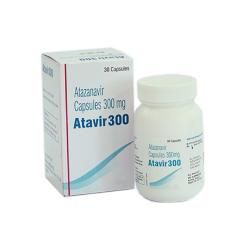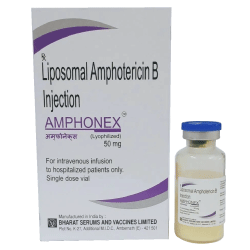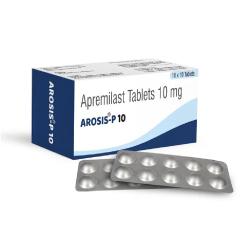Description
Bivalirudin injection is a direct thrombin inhibitor (DTI) with specific actions used as an anticoagulant in patients undergoing percutaneous coronary intervention (PCI) including patients with heparin-induced thrombocytopenia (HIT) or heparin-induced thrombocytopenia and thrombosis syndrome (HITTS).
Dosage and Side Effects
The recommended dosage of Bivalirudin injection is an intravenous bolus dose of 0.75 mg/kg, followed promptly by an infusion of 1.75 mg/kg/h for the duration of the procedure. Five minutes after the bolus dose has been administered, an activated clotting time (ACT) must be performed and an additional bolus of 0.3 mg/kg should be given if required. Extended duration of infusion following PCI at 1.75 mg/kg/h for up to four hours post-procedure should be considered in patients with ST-segment elevation MI (STEMI).
The most common side effect of Bivalirudin injection is bleeding.
FAQ's
What is Bivastat?
Bivastat is a generic of Angiomax that contains Bivalirudin as the main component. This drug is used as an anticoagulant in those undergoing percutaneous coronary intervention (PCI) including patients with heparin-induced thrombocytopenia (HIT) or heparin-induced thrombocytopenia and thrombosis syndrome (HITTS).
Who has launched the generic Bivastat?
Cipla Limited has launched the generic Bivastat, as 250 mg/vial for intravenous (IV) use/administration.
How is Bivalirudin administered?
Bivalirudin is intended for intravenous bolus injection and continuous infusion after reconstitution and dilution.
How do I store Bivalirudin?
Store Bivalirudin dosage units at 20-25°C (68-77°F). Excursions to 15-30°C are permitted.
How much does Bivalirudin cost in India?
Bivalirudin 250 mg injection cost in India is very reasonable and can vary. To procure it legally, you can call us at (+91) 8130290915, TOLL-FREE: 1800-889-1064, Or Write us at info@indiangenericmedicines.com.
Can Bivalirudin be used while I’m pregnant?
Bivalirudin injection may be unsafe if used during pregnancy. Talk to your doctor about the best way to control your disease if you want to become pregnant or during pregnancy.
Can Bivalirudin be used while breastfeeding?
Breastfeeding is not recommended while on Bivalirudin injection. Talk to your doctor if you are breastfeeding or intend to breastfeed.
Where can I get Bivalirudin at the best Price?
Order Bivalirudin injection at the best price today. We request you to Call/WhatsApp us at (+91) 8130290915 or dial our TOLL-FREE Number: 1800-889-1064 or Write us at info@indiangenericmedicines.com. We are fully committed to providing you with the best Bivalirudin injection 250 mg price from India. That is why we’ll match the cost/price of any other existing suppliers/distributors in the market who require a medical prescription.
Is Bivalirudin available in India?
Bivalirudin injection is a (prescription drug, doctor-prescribed medication, or health care professional-prescribed medicine) pharmaceutical drug that can be legally dispensed against a medical prescription. Bivalirudin can be made available through the network of authorized distributors in India. (Ahmedabad, Hyderabad, Kolkata, Bangalore, Mumbai, Chennai, Delhi, Pune, etc.).
Can You Send the Bivalirudin to Foreign Destinations?
Buy generic Bivalirudin injection online at the best/lowest price from a leading supplier. Indian Generic Medicines (IGM) can assist in the delivery of Bivalirudin; the doctor-prescribed therapeutic drug to the UK, Canada, the USA, Saudi Arabia, Australia, Philippines, Thailand, China, South Africa, Kazakhstan, Uzbekistan, Hong Kong, UAE, Turkey, Zambia, Pakistan, Kuwait, Malaysia, Singapore, Sri Lanka, Sweden, Afghanistan, Qatar, Japan, Nepal, and many other countries.
What is the procedure for buying Bivalirudin from Indian Generic Medicines?
Patients can fill out the order form or send mail to info@indiangenericmedicines.com. Patients can also send WhatsApp messages to +91 8130290915 or can dial the TOLL-FREE Number: 18008891064. We will reply ASAP with the details of the Bivalirudin 250 mg injection price and the procurement procedure.
Note:- The order will be confirmed only after the valid receipt of the prescription from the Physician.
Is it safe to buy Bivalirudin online from India?
Yes, one can buy Bivalirudin injection online from India-based Indian Generic Medicines if this medication is not (yet) registered or is unavailable in their respective country. We can facilitate the export of Bivalirudin through legal channels.






